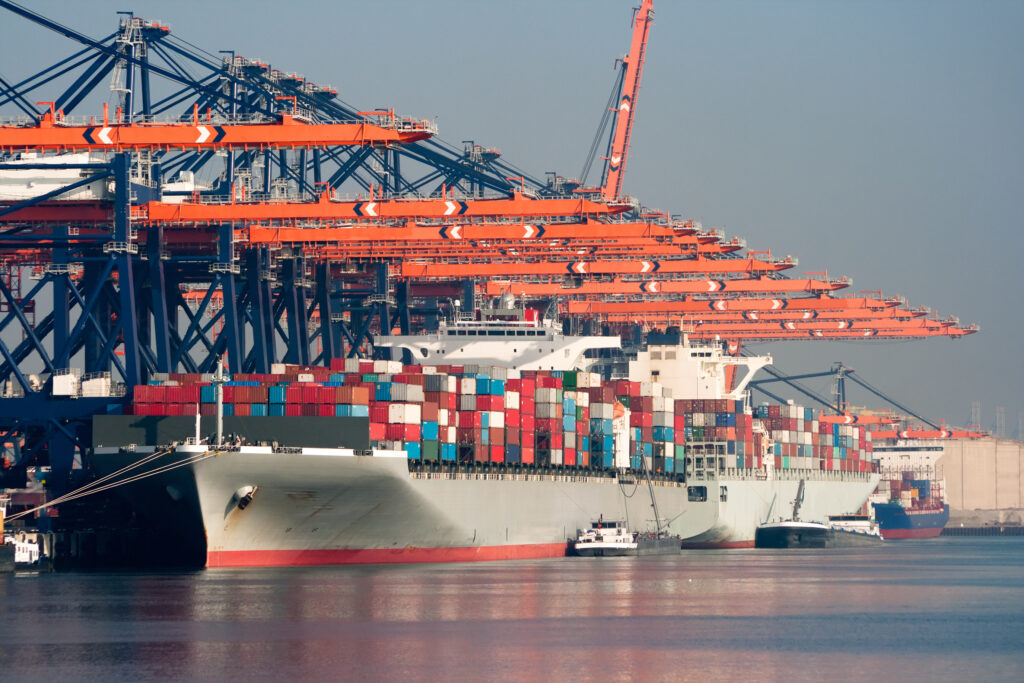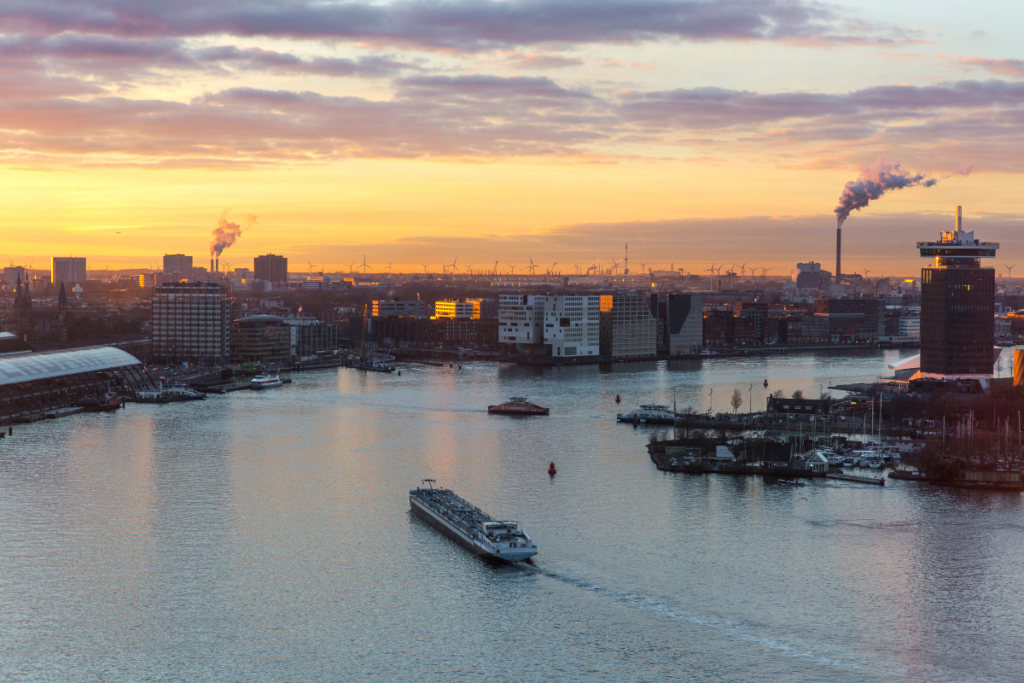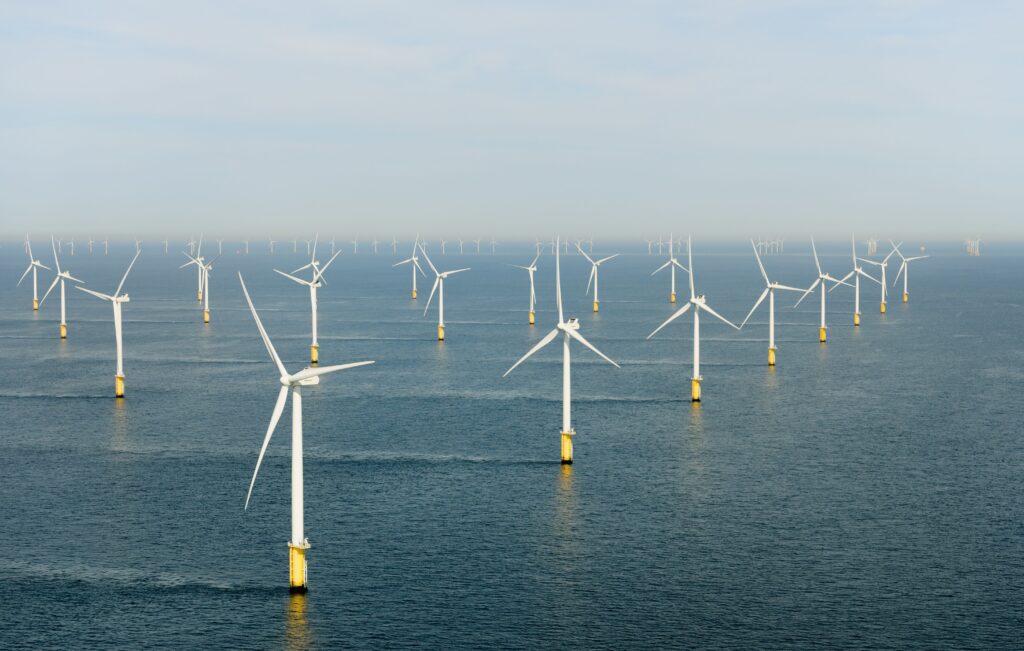Chart a Course with the Netherlands for a Smarter, Sustainable Maritime Sector
With centuries of experience and a modern mindset for innovation, the Netherlands is an attractive harbor for companies to develop the next generation of maritime solutions
New winds are blowing in the global maritime sector, and there’s no better place for companies to steer a path toward the future than the Netherlands. Positioned as a gateway to Europe, the Netherlands earned its reputation as a seafaring trade powerhouse long ago. Today, the country wields its expertise to solve 21st-century challenges in our oceans and coasts.
The dynamic Dutch maritime ecosystem, anchored by major ports and innovation clusters, is widely recognized within the country and worldwide for its vital contributions to economic growth and key transitions like the energy transition. That’s why the Netherlands welcomes international players to accelerate solutions for a more intelligent and sustainable world.
Already known for its excellence in the industry, the Dutch maritime sector is attracting companies eager to push the leading edge of smart maritime technologies, zero-emission shipping, circular shipbuilding, offshore wind farms, maritime security, the sustainable blue economy and much more.
The Netherlands: Maritime capital of Europe
What makes the Netherlands a leading maritime hub in Europe? The country is strategically located at the crossroads of international trade routes, enabling access to 500 million European consumers within 24 hours. It’s easy to see why so many companies with global aspirations choose to go Dutch for smart, efficient logistics operations, fueling the growth of the maritime sector. Moreover a national strategy to advance the energy transition by building zero-emission ships.
The Netherlands’ maritime excellence is often linked to Rotterdam, the maritime capital of Europe and the In this regard, the renowned Port of Rotterdam is part of a wider network of dynamic Dutch seaports. These ports function as economic powerhouses and magnets for investment, collectively strengthening the Dutch maritime ecosystem.
All told, the Netherlands hosts more than 21,000 maritime organizations – including global and home-grown industry heavyweights like Maersk, Shell, Vroon, Damen, Heerema, Van Oord, Boskalis, Mammoet, Fugro and many more. From shipbuilding, shipping and offshore energy to business services, logistics and trading, every type of maritime business converges in the Netherlands. Put it all together, and you get the most complete maritime ecosystem in Europe.
Additionally, the Netherlands hosts a robust community for maritime business services, exemplified by a world-class insurance market and special Maritime Chamber in Rotterdam along with various shipping & trade arbitration institutions and maritime financiers.
The Dutch triple helix on the high seas
This complete maritime cluster thrives due to the Netherlands’ unique triple helix – an approach to collaboration between companies, knowledge institutes and government that propels innovation, talent and business development. The Dutch maritime ecosystem is teeming with research institutes like TNO, Maritime Research Institute Netherlands and TU Delft, along with hands-on training centers like Maritieme Academie Harlingen, STC Group, NHL Stenden and Maritime Institute Willem Barentsz. These knowledge centers educate the next generation of talent while fostering industry partnerships to advance research & development.
In addition, innovators from all over the world can tap into the Dutch network of accelerators – such as PortXL, Damen Maritime Ventures, Buccaneer Delft and YES!Delft – to develop solutions for maritime challenges. For companies looking to test their technologies in a practical setting, industry hubs like the historic shipyard of RDM Rotterdam offer high-quality test facilities and field labs. Maritime innovation cluster METIP provides an environment for companies and startups to collaborate with military partners on emerging technologies like maritime drones, immersive technology for defense training, additive manufacturing, robotization and wave technology. At the national level, the Netherlands stimulates R&D while organizations like the Dutch Maritime Network connect companies with funding and knowledge-sharing opportunities.
Pioneering digital technologies for smarter shipping
Small wonder, then, that the Netherlands is at the forefront of the smart shipping revolution. The country’s world-class port infrastructure provides excellent digital connectivity to ensure the maritime sector’s technological transition can proceed full steam ahead. Across the board, the Dutch maritime ecosystem embraces digitalization and artificial intelligence to achieve greater efficiency, safety and sustainability in shipping.
The Port of Rotterdam, renowned as the No. 1 smartest port in the world, offers a case in point. The port has created a digital twin, enabling real-time simulation and optimization of operations. The Rotterdam World Gateway is one of the world’s most automated and innovative terminals, featuring 24-hour self-driving electric trucks and state-of-the-art digitalized containers. Similar innovations are unfolding at other Dutch seaports. The Port of Amsterdam, for example, offers a first-of-its-kind open platform called Poseidon for digital tracking systems on push barges. In addition, the Port of Moerdijk features a large-scale Internet of Things network and smart sensors for water monitoring, while North Sea Port uses big data to enable smooth information transfer between companies in the logistics chain.
With this forward-thinking ecosystem, the Netherlands proves to be the perfect environment for international players like U.S.-based Nearshore Networks to develop its maritime communications solutions.
Building ships for the future
The Dutch also lead the way in innovative and sustainable shipbuilding, with a rich tradition of expertise in the field that dates back centuries and continues to evolve with modern technology. The Netherlands is home to a comprehensive talent pool of ship and yacht designers, naval architects, engineers and craftsmen who are ready to support cutting-edge shipbuilding projects.
In particular, the Dutch maritime manufacturing industry is focused on smart and circular shipbuilding. Companies, knowledge institutes and regulators are joining forces in areas like the greater Rotterdam region to create a circular system that spans the entire lifecycle of a ship, from initial design and construction to ship operation and end-of-life phases.
Toward a sustainable blue-green economy
All these efforts – from smarter shipping to circular shipbuilding – merge with the Netherlands’ commitment to sustainability, which flows throughout its maritime ecosystem. Dutch industry leaders envisage a “blue-green” economy in which clean, healthy oceans become new frontiers for generating energy and transporting goods. Guided by its Maritime Masterplan, the Dutch maritime sector is a leader in adopting green innovation, setting ambitious targets to reduce CO2 emissions by 55% by 2030 and achieve carbon neutrality by 2050. Such national efforts are mirrored by industry hubs like the Port of Rotterdam, which aims to be emission-free by 2050, and the Port of Amsterdam, with its strategic plan to become a hub for clean shipping, renewable energy and circular industry by 2040.
As a result, there are oceans of opportunity across every facet of the Netherlands’ blue-green economy. On the energy front, international companies can work with Dutch partners on offshore wind and solar energy projects, along with energy storage and carbon capture technologies. Sustainable chemical pioneers are also welcome, as the Dutch maritime sector adopts cleaner fuel sources like sustainable LNG, biofuels and methanol. Growing demand for electric vehicles, equipment and charging infrastructure at Dutch ports similarly spells opportunity for high-tech mobility firms.
No matter your area of expertise in the maritime industry, one thing is clear: all currents lead to the Netherlands. Want to learn more about opportunities for business growth and collaboration in the Dutch maritime ecosystem? Contact our team to discover how we can chart a path to a sustainable future together.
11 March 2025


